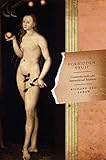Forbidden Fruit : Counterfactuals and International Relations / Richard Ned Lebow.
Material type: TextPublisher: Princeton, NJ : Princeton University Press, [2010]Copyright date: ©2010Edition: Course BookDescription: 1 online resource (352 p.) : 4 line illus. 14 tablesContent type:
TextPublisher: Princeton, NJ : Princeton University Press, [2010]Copyright date: ©2010Edition: Course BookDescription: 1 online resource (352 p.) : 4 line illus. 14 tablesContent type: - 9780691132907
- 9781400835126
- 327.1072 22
- JZ1234
- online - DeGruyter
- Issued also in print.
| Item type | Current library | Call number | URL | Status | Notes | Barcode | |
|---|---|---|---|---|---|---|---|
 eBook
eBook
|
Biblioteca "Angelicum" Pont. Univ. S.Tommaso d'Aquino Nuvola online | online - DeGruyter (Browse shelf(Opens below)) | Online access | Not for loan (Accesso limitato) | Accesso per gli utenti autorizzati / Access for authorized users | (dgr)9781400835126 |
Browsing Biblioteca "Angelicum" Pont. Univ. S.Tommaso d'Aquino shelves, Shelving location: Nuvola online Close shelf browser (Hides shelf browser)

|

|

|

|

|

|

|
||
| online - DeGruyter Japan Transformed : Political Change and Economic Restructuring / | online - DeGruyter The Diffusion of Military Power : Causes and Consequences for International Politics / | online - DeGruyter Reputation and Power : Organizational Image and Pharmaceutical Regulation at the FDA / | online - DeGruyter Forbidden Fruit : Counterfactuals and International Relations / | online - DeGruyter Rational Theory of International Politics : The Logic of Competition and Cooperation / | online - DeGruyter Diversity and Complexity / | online - DeGruyter Working Together : Collective Action, the Commons, and Multiple Methods in Practice / |
Frontmatter -- Contents -- Acknowledgments -- PART ONE -- CHAPTER ONE. Making Sense of the World -- CHAPTER TWO. Counterfactual Thought Experiments -- PART TWO -- Chapter Three. Franz Ferdinand Found Alive: World War I Unnecessary -- Chapter Four. Leadership and the End of the Cold War: Did It Have to End This Way? -- PART THREE -- CHAPTER FIVE. Scholars and Causation 1 -- CHAPTER SIX. Scholars and Causation 2 -- CHAPTER EIGHT. Heil to the Chief: Sinclair Lewis, Philip Roth, and Fascism -- Conclusions -- Notes -- Index
restricted access online access with authorization star
http://purl.org/coar/access_right/c_16ec
Could World War I have been averted if Franz Ferdinand and his wife hadn't been murdered by Serbian nationalists in 1914? What if Ronald Reagan had been killed by Hinckley's bullet? Would the Cold War have ended as it did? In Forbidden Fruit, Richard Ned Lebow develops protocols for conducting robust counterfactual thought experiments and uses them to probe the causes and contingency of transformative international developments like World War I and the end of the Cold War. He uses experiments, surveys, and a short story to explore why policymakers, historians, and international relations scholars are so resistant to the contingency and indeterminism inherent in open-ended, nonlinear systems. Most controversially, Lebow argues that the difference between counterfactual and so-called factual arguments is misleading, as both can be evidence-rich and logically persuasive. A must-read for social scientists, Forbidden Fruit also examines the binary between fact and fiction and the use of counterfactuals in fictional works like Philip Roth's The Plot Against America to understand complex causation and its implications for who we are and what we think makes the social world work.
Issued also in print.
Mode of access: Internet via World Wide Web.
In English.
Description based on online resource; title from PDF title page (publisher's Web site, viewed 29. Jul 2021)


